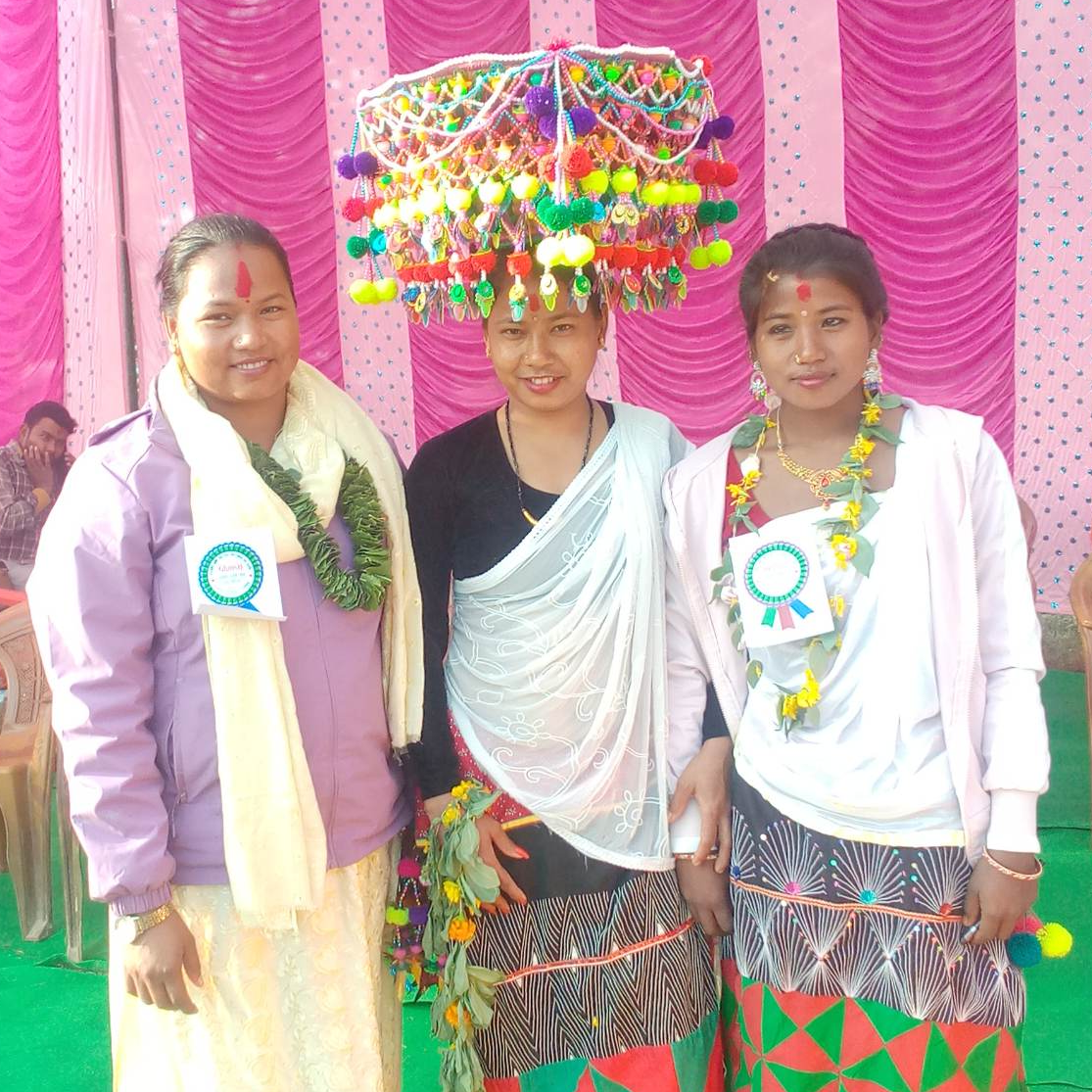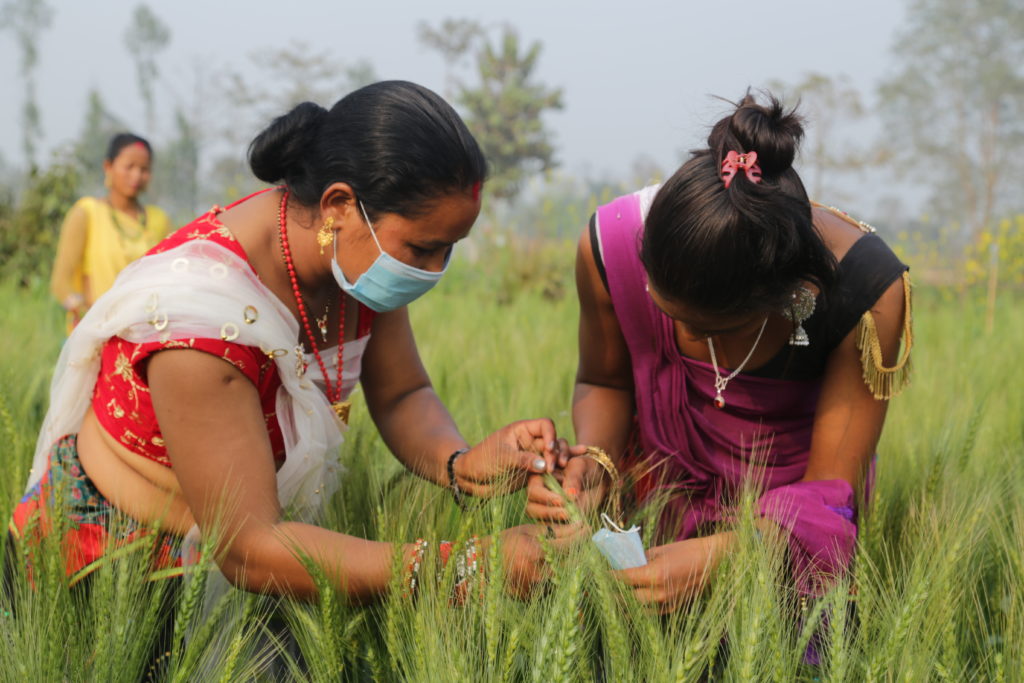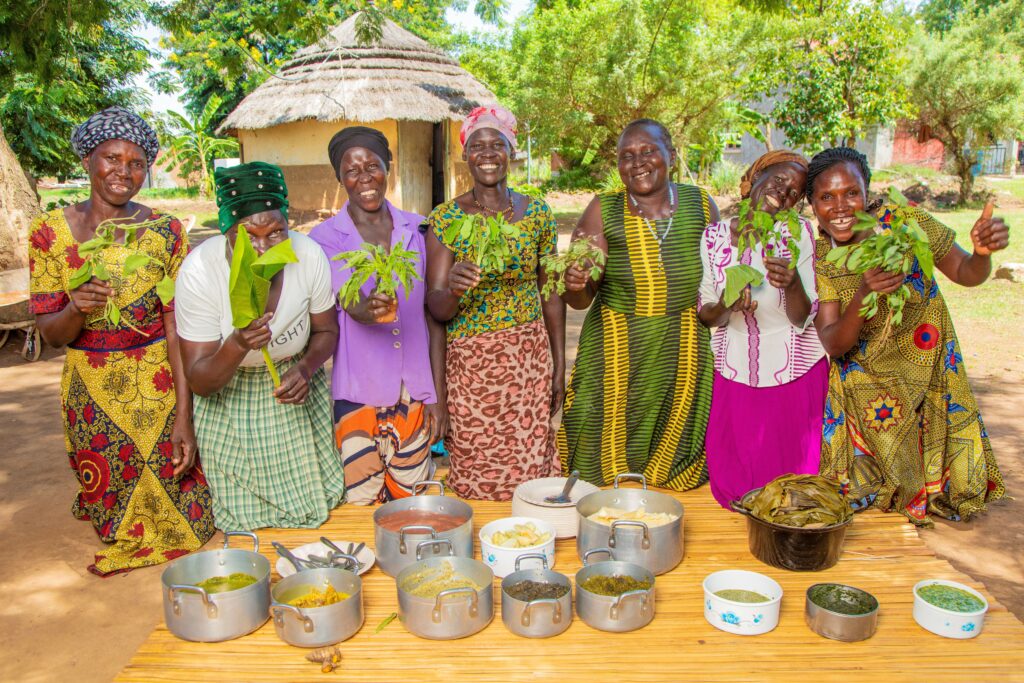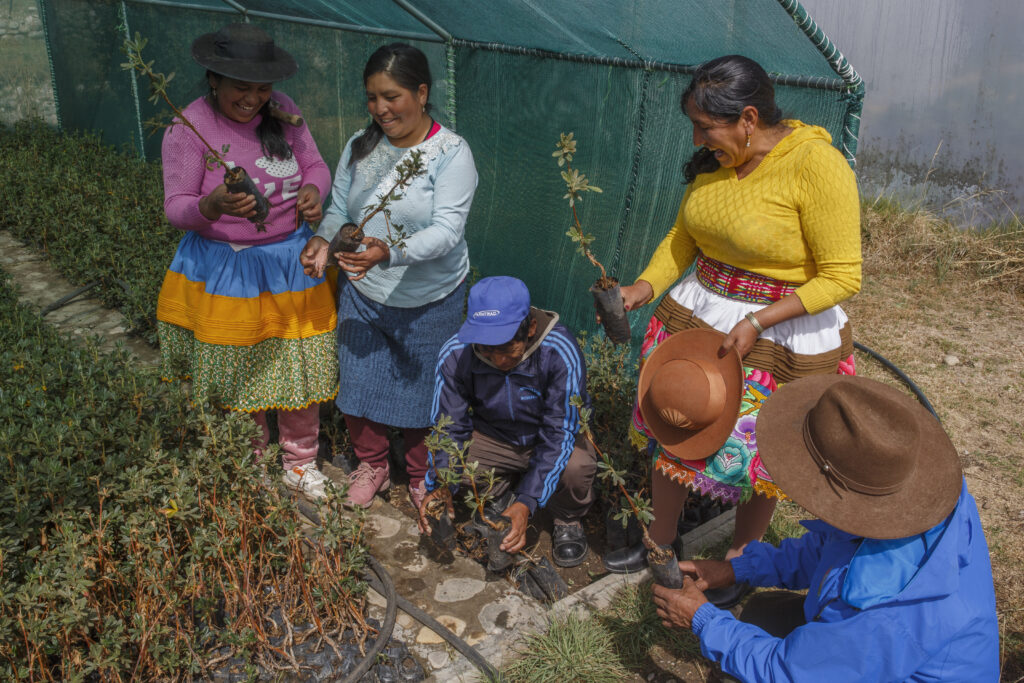Prepared by Aakash Koirala, Senior Program Officer, LIBIRD
Reviewed by Lok Pd. Poudel, Technical Coordinator Oxfam Nepal
The “Sowing Diversity = Harvesting Security (SD=HS),” a four-year collaborative initiative involving Oxfam Novib, Oxfam Nepal, and LIBIRD, launched from 2019 to 2023 (with a one-year, no-cost extension) was funded by SIDA. The primary objective of this initiative was to empower indigenous people and smallholder farmers, ensuring their rights and building their capacity to access, develop, and utilize plant genetic resources to enhance food and nutrition security, particularly in the face of changing climatic conditions.
In November 2023, a concluding workshop for SDHS was meticulously organized. The immediate purpose of the workshop was to acknowledge the accomplishments achieved throughout the initiative and express gratitude to local government representatives, officials, master facilitators, facilitators, representatives of Farmer Seed Enterprises (FSE), and other stakeholders. Additionally, the event aimed to foster discussions on future initiatives. The workshop’s long-term objective was to perpetuate the enduring companionship forged through the initiative.
The handover workshop took place in seven local government entities, namely Laljhadi, Kailari, Joshipur, Ganyapdhura, Jorayal rural municipalities, and Krishnapur and Gauriganga Urban Municipalities. The proceedings were conducted under the chairpersonship of Oxfam colleagues, and the Mayor took the esteemed position of chief guest.
In terms of gender distribution among the workshop participants, out of the 288 attendees, 62% were male, and 38% were female. Ethnically, there was a diverse representation, with 3% identifying as Dalit, 53% as Janajati, and 44% as belonging to other ethnic groups. The presence of key figures such as mayors, vice mayors, chairpersons, and section heads of Palikas added significant energy to the program across various Palikas.

Throughout the workshop, the Technical Coordinator from Oxfam, along with Senior Program Officer and Program Officers from LIBIRD, conducted sessions highlighting key achievements in Farmer Field Schools, Farmer Seed Enterprises, and detailed profiles of Master Facilitators and Facilitators involved in diverse FFS. This meticulously presented information serves as a valuable resource for local entities interested in conducting similar Participatory Plant Breeding (PPB) FFS and expanding seed marketing through FSE, enabling them to draw upon the experiences of SD=HS as a guiding reference.
During the handover program, the chairpersons from rural municipalities and mayors expressed their concerns regarding strengthening the institutional capacity of the agriculture section in their respective municipalities. They proposed that the next project, “Cultivating for Change,” should focus on supporting local government institutions in formulating local agriculture policies, strategies, and plans. Mr. Ram Samaj Chaudhary, the chairperson of Kailari Rural Municipality, shared his observations from visiting various Farmer Field Schools, stating, “I have found members of the school immensely happy.” Emphasizing the sustainability aspect of Farmer’s Field School, one of the ward chairpersons encouraged a focus on organic farming. The chairpersons expressed appreciation for the significant work done in selecting and improving varieties such as Lal Anadi, Jorayal Basmati, and Jhumka through FFS, as well as the strengthening of FSE to sustain seed markets. They sincerely thanked the organizations for exploring the importance of Neglected and Underutilized Species (NUS) crops and the need for their conservation within the working sites under the SD=HS project.


While contemplating the utilization of master facilitators and facilitators from the project for FFS and other agricultural activities, the chairpersons acknowledged the need for effective guidance. They sought technical support from LI-BIRD to leverage the knowledge and skills of these facilitators. The chairpersons extended gratitude to LIBIRD for involving them and the ward chairpersons in the project, ensuring they were well-informed about the project’s progress and its positive impact on the local community. This acknowledgement from key figures strengthens the spirit of collaboration and the shared commitment to sustainable agriculture and community development.









